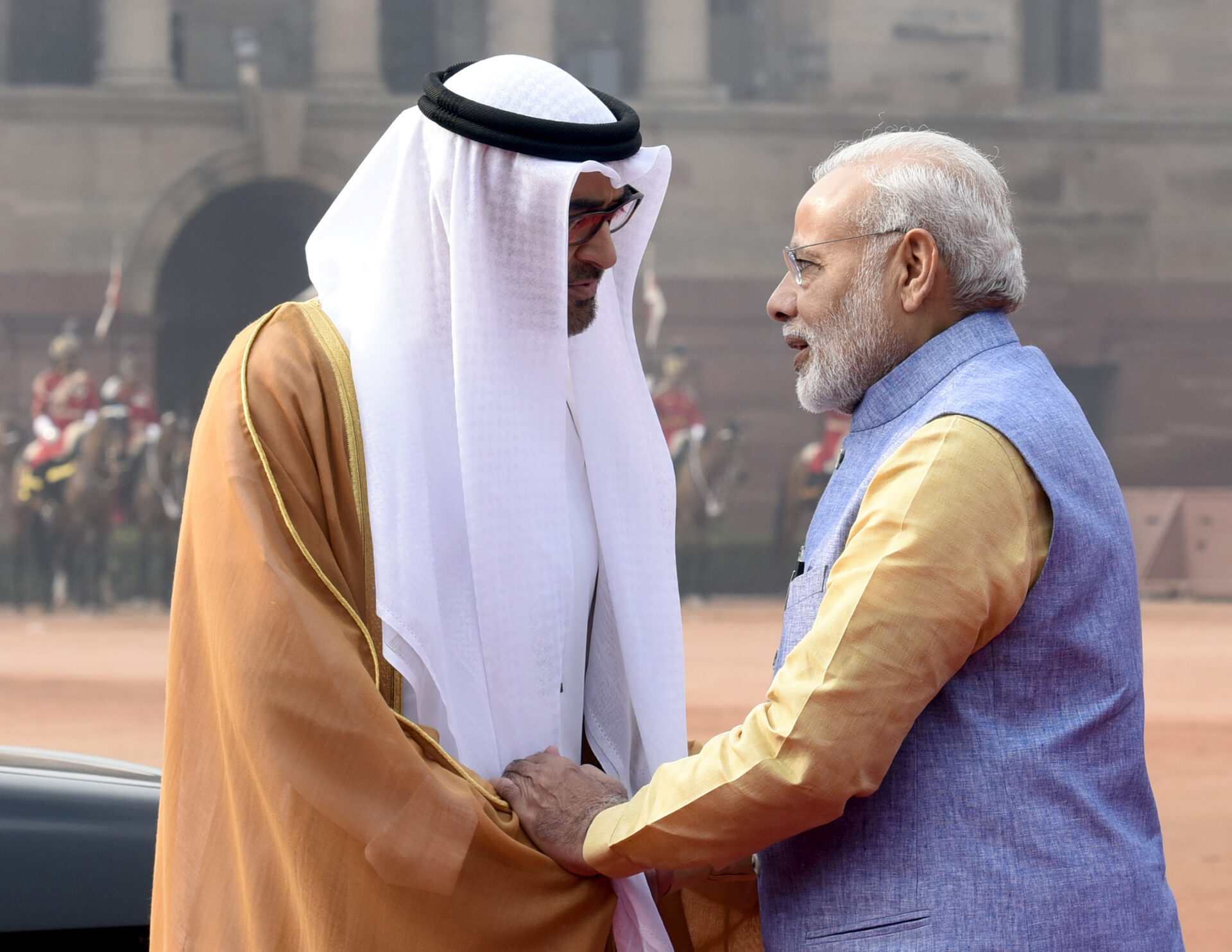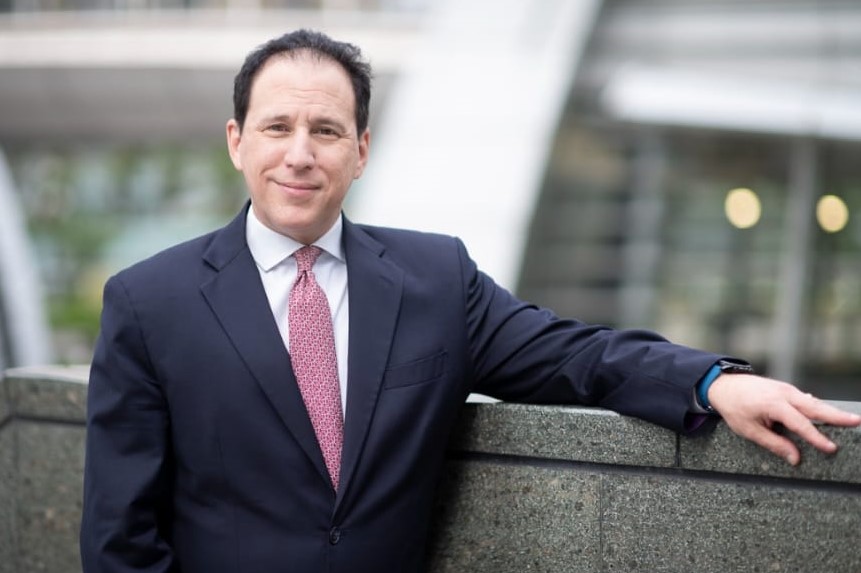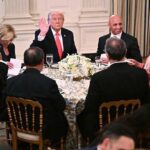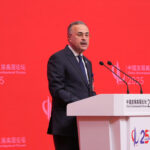Gulf ties with Indian health care draw investors to Mideast alliance
Medical ventures, water conservation among the elements reinforcing U.S.-backed trade group that brings together UAE, India and Israel

Sonu Mehta/Hindustan Times via Getty Images
Indian Premier Narendra Modi greets UAE's Sheikh Mohamed Bin Zayed during 2017 visit to New Delhi
TEL AVIV, Israel – When Hong Kong-based fund manager Sean Debow went hunting in India for promising health care investments in 2009, he became intrigued by the growing demand for knee and hip replacement surgery. Many private hospitals in New Delhi and Mumbai were filling beds for such elective operations with patients from the nearby Arab Gulf states who were struggling with obesity.
The trend in medical tourism that Debow discovered 14 years ago when he ran a small regional investment firm has fueled a significant part of his India strategy as CEO for Asia of Eurizon Asset Management, the Milan-based unit of Italy’s biggest banking group, Intesa Sanpaolo. With $416 billion under management, Eurizon invests in some of India’s biggest hospitals and pharmaceutical companies.
“I’ve been watching the sector grow,” Debow told The Circuit during an interview in Tel Aviv. “The accelerant has absolutely been the growth from the Gulf, whereby there’s this mutual trust between Indian health care companies, health professionals and people in the Gulf,”
The close ties between India and the Gulf states has in turn become a pillar of the regional trade alliance known as “I2U2” that was designed to promote cooperation among India, Israel, the United Arab Emirates and the U.S., following up on the 2020 Abraham Accords. Creating the quartet was among the foreign policy objectives that U.S. President Joe Biden sought to reinforce during his visit to Israel and Saudi Arabia last July. Health care is among the central components of the initiative, which also aims to promote investment in water, energy, transportation, space and food security.
Debow, a 56-year-old Canadian who is also chief investment officer for Eurizon Asia and has spent three decades managing money in the region, describes a synergy among the group’s four members in the health care market. It’s based on the wide-ranging U.S. leadership in the field, the UAE’s willingness to invest large sums of money, Israel’s innovative medical startups and India’s position as the world’s fifth-biggest economy with a population that is projected to surpass China’s this year, he said. Israel’s Teva Pharmaceutical Industries is the largest maker of generic drugs while India’s Sun Pharma is ranked No. 4.

Large asset managers such as Eurizon tend to own positions in excess of $100 million in companies they fund, though Debow declined to confirm the size or names of the firm’s investments in India
Betting on India’s health care industry, where he says “it would not be unusual to see 30% compounded growth for the next five years,” Debow said cooperation with the UAE, Israel and the U.S. is good for everyone.
Several Israeli and UAE hospitals have explored areas of cooperation since the normalization agreements were signed. Israel’s Sheba Medical Center formed a partnership with Bahrain’s King Hamad American Mission Hospital to share new techniques in surgery and telemedicine, as well as medical technology developed by affiliated startup companies.
“Israeli technology is perceived as premium and hot,” Debow said. “It would be up there with Philips and GE.”
Formally established in October 2021 by U.S. Secretary of State Tony Blinken and the foreign ministers of the three countries, I2U2 got a top-level launch last year when Biden held a video conference from Jerusalem to discuss the initiative with Sheikh Mohammed bin Zayed, now president of the UAE; Indian Prime Minister Narendra Modi; and the Israeli prime minister at the time, Yair Lapid.
The first project announced after the call in July was a $2 billion investment by the UAE in developing a series of food parks across India that would use Israeli and U.S. technologies to reduce food waste, conserve fresh water and use renewable energy sources. A second project is a hybrid renewable energy initiative in India’s Gujarat state to generate 300 megawatts of wind and solar capacity along with a battery system to store the energy.
Besides health care, other areas where the commercial paths of the UAE, India and Israel intersect is in water conservation and the diamond trade. Watergen, an Israeli company that can extract large quantities of drinking water from the air, opened a branch in India after a visit in 2018 by Prime Minister Benjamin Netanyahu. Watergen also started operating in the UAE after the Abraham Accords normalized ties between the two countries that had no diplomatic relations before 2020.
The transition of the landmark Arab-Israeli agreements into a multilateral network will have further benefits down the line in developing the alliance as a regional hub for international trade, according to Sanjeev Dutta, executive director of commodities and financial services at the Dubai Multi Commodities Centre.
“You’re opening up corridors, you’re opening up efficiencies, you’re removing a protectionist mentality,” Dutta told The Circuit in Ramat Gan, Israel, where he attended the World Diamond Congress last month.
The DMCC, which houses the Dubai Diamond Exchange as well as global tea and coffee markets, has for years been an environment for interaction among Indians, Israelis and Emiratis, all central players in the global diamond market. It is a free-trade zone and a city within the city of Dubai that is made up of 87 office and residential towers with 100,000 people. More than 75 Israeli companies in industries ranging from financial services to telecommunications and cybersecurity are based in the DMCC.
“The governments have created the playing field for industry across these geographies,” Dutta said. “We provide the infrastructure. It’s like a one-stop shop.”










